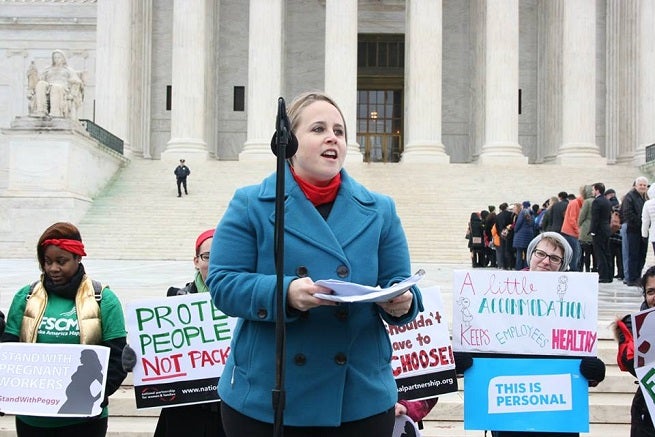Uncategorized
Failure is Common When it Comes to Family Work Policies

A family-friendly workplace is essential in an age where people are working harder for less. But as a new report from the National Partnership for Women & Families finds, most states are dropping the ball when it comes to mandating a better work-life balance.
A state-by-state analysis of laws on the books finds that few of them have expanded on the federal Family and Medical Leave Act (FMLA). The document actually gives 27 states a grade of “D” or “F” when it comes to support they provide new parents in the workplace. Only one state, California, earned an “A”.
“Despite some meaningful progress, too many working families in this country struggle at the very time they should be focused on giving children their best possible starts in life,” said Debra Ness, president of the National Partnership, which helped draft and lead the fight for the FMLA. “Twenty-three years after the country took its first major step to help people manage job and family by implementing a national unpaid family and medical leave law, our study reveals that people in too few states are guaranteed access to paid leave and other workplace protections they urgently need.”
The lack of state laws dealing with paid leave and other workplace rights for expecting and new parents in the U.S. is especially striking, the group said, given the increased role of women both as workers and caregivers. Lawmakers, the study said, are letting them down.
There is strong public support for policies like paid family and medical leave, paid sick days and pregnancy accommodations, some of which was discussed here. The Teamsters have joined with hundreds of other organizations to call for the passage of federal legislation that would allow for more family time for parents and children while protecting pregnant mothers from job discrimination.
But until that happens, states play an essential role in this discussion. If elected officials truly care about “family values” and the constituents they serve, they will help provide them with these pro-family safeguards.